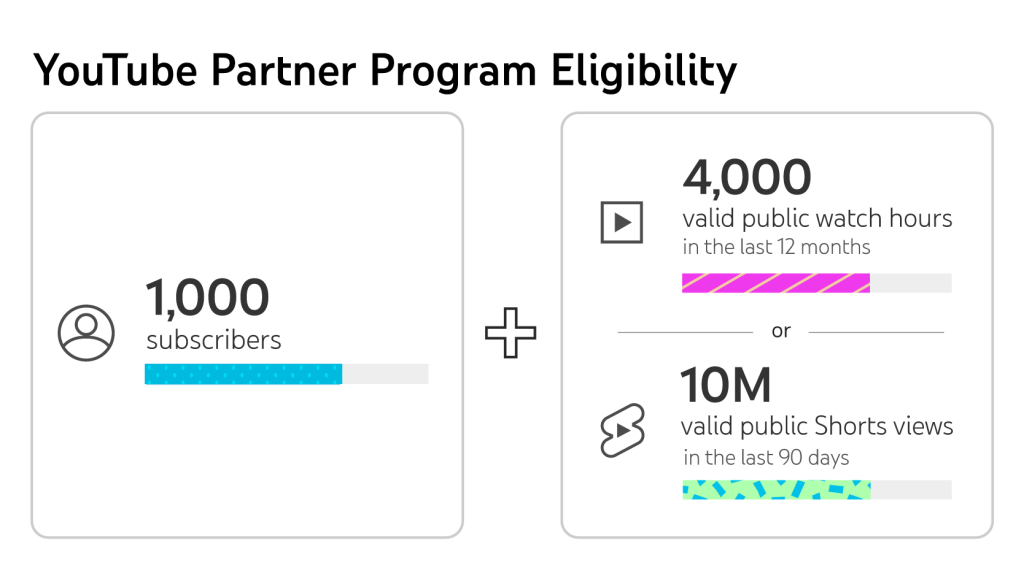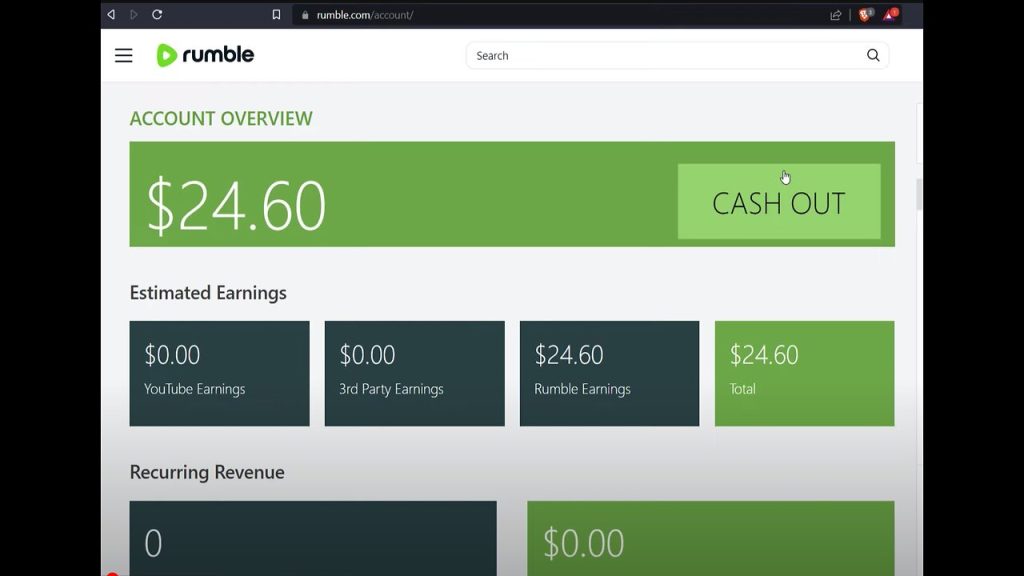
Level Up Your Marvel Rivals Gameplay
Capture your epic wins, clutch moments, and even hilarious fails with Eklipse. Easily create and share highlight reels with your friends—even if you're not streaming!
Learn MoreWhen comparing the monetization strategies of Rumble and YouTube, several key differences and similarities stand out. Both platforms offer unique opportunities for content creators, but they cater to different needs and audiences. Here’s an in-depth look at how each platform compensates its creators.
YouTube Monetization
This guide will take you through the requirements for monetization on YouTube, the different revenue streams available, and some of the challenges you might encounter along the way.
Monetization Requirements

To start earning money on YouTube, creators must join the YouTube Partner Program (YPP). This requires:
- 1,000 subscribers
- 4,000 hours of watch time in the last 12 months or 10 million Shorts views in the last 90 days
Revenue Streams
YouTube offers multiple monetization options, including:
- Ad Revenue: Creators earn 55% of the ad revenue, while YouTube takes 45%.
- Channel Memberships: Available to creators with at least 500 subscribers and 3,000 hours of watch time. YouTube takes a 30% cut.
- Super Chats: Viewers can donate during live streams, with YouTube taking a 30% cut.
- Shorts Monetization: Creators can earn from Shorts, with revenue splits depending on music usage.
- Merchandise and Sponsorships: Additional income streams through third-party integrations.
Challenges
- High Competition: With over 2 billion active users, standing out on YouTube can be challenging.
- Strict Policies: YouTube’s content guidelines can lead to demonetization or video removal, impacting potential earnings.
Statistics
- Monthly Active Users: Over 2 billion
- Videos Watched Per Day: 1 billion hours of video
- Top Earning YouTuber (2021): MrBeast, earning $54 million
More on Eklipse Blog >>> YouTube Monetization: 10 Ways to Make Money on YouTube
Rumble Monetization
Let’s delve into Rumble’s monetization requirements, revenue streams, advantages, and some key considerations to keep in mind.
Monetization Requirements

Rumble offers immediate monetization opportunities without stringent subscriber or watch time requirements. This makes it more accessible for new creators.
Revenue Streams
Rumble provides several ways to earn:
- Ad Revenue: Creators earn 60% of the ad revenue, with Rumble retaining 40%.
- Video Licensing: Rumble offers various licensing deals, including exclusive and non-exclusive agreements. Creators earn from licensing fees negotiated by Rumble.
- Rumble Rants: Viewers can donate during live streams. Rumble takes a 20% fee from these donations.
- RumbleTalk’s PayWall: Creators can charge for access to group chats, either per time or per access. Rumble charges a 10% fee.
- Platform Partnerships: Videos syndicated through high-traffic websites like Yahoo and MSN can generate additional revenue.
Advantages
- Lower Payout Threshold: Creators can receive payouts starting at $50, compared to YouTube’s $100 threshold.
- Less Competition: Rumble’s smaller user base means less competition and potentially higher engagement rates.
- Viral Video Bonuses: Additional earnings for videos that achieve high view counts in a short period.
Considerations
- Niche Audience: Rumble’s user base is smaller and more niche, which might affect the potential reach compared to YouTube.
- Less Advanced Advertising: Rumble’s ad targeting capabilities are not as sophisticated as YouTube’s, which could impact ad revenue.
Statistics
- Monthly Active Users: 44 million
- Videos Uploaded Per Month: Over 3 million
- Top Earning Rumbler (2021): Dan Bongino, earning $9 million
More on Eklipse Blog >>> How to Make Money on Rumble in 2024 [Must Read for Beginners]
Comparison Table
| Feature | YouTube | Rumble |
|---|---|---|
| Monetization Requirement | 1,000 subscribers, 4,000 hours watch time or 10 million Shorts views | No strict requirements |
| Ad Revenue Split | 55% to creator, 45% to YouTube | 60% to creator, 40% to Rumble |
| Channel Memberships | Available with 500 subscribers and 3,000 hours watch time | Not available |
| Super Chats | 70% to creator, 30% to YouTube | 80% to creator, 20% to Rumble |
| Video Licensing | Limited | Various deals, up to 90% to creator |
| Viral Bonuses | Not available | Available |
| Payout Threshold | $100 | $50 |
| User Base | 2 billion monthly active users | 44 million monthly active users |
| Top Earner (2021) | MrBeast ($54 million) | Dan Bongino ($9 million) |
Conclusion
Understanding how Rumble pays creators compared to YouTube is crucial for making an informed decision. Both Rumble and YouTube offer viable monetization opportunities for content creators, but they cater to different needs:
- YouTube is ideal for those looking to tap into a vast, global audience and leverage multiple income streams despite higher entry barriers and competition.
- Rumble provides a quicker path to monetization with lower thresholds and less competition, making it suitable for new creators or those with niche content.
By understanding the strengths and challenges of each platform, creators can choose the one that best aligns with their content strategy and audience engagement goals.

🎮 Play. Clip. Share.
You don’t need to be a streamer to create amazing gaming clips.
Let Eklipse AI auto-detect your best moments and turn them into epic highlights!
Limited free clips available. Don't miss out!
